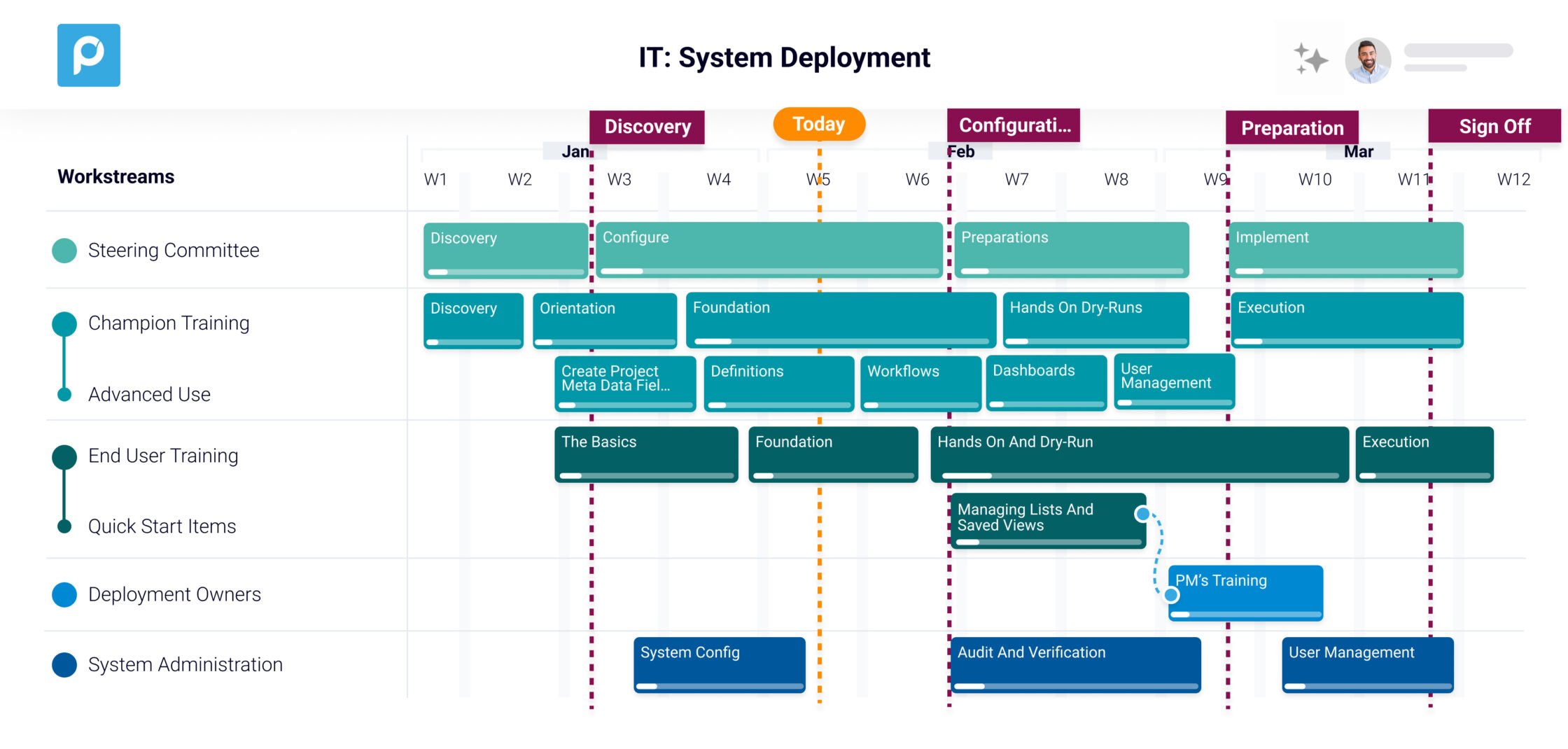How to Optimize Project Management with a Housing Association Schedule

Managing projects within a housing association requires strategic planning, clear communication, and the ability to address diverse challenges. From overseeing maintenance schedules to ensuring compliance, optimizing effective project management operations is essential for delivering impactful housing solutions. This blog explores how housing associations can streamline project management with actionable tips and powerful tools like Proggio, making your processes more efficient and effective.
Imagine transforming your project management approach, where every task is organized, every team member is aligned, and every deadline is met with confidence. By implementing modern project management practices, housing associations can break free from common barriers such as limited resources and fragmented communication. Discover how to enhance collaboration, reduce delays, and drive projects to successful completion—all while delivering exceptional results for your community. Dive into our insights and explore the potential for impactful, sustainable outcomes with Proggio today!
What You Will Learn
- The significance of housing associations and their unique challenges
- Key strategies to optimize housing associations’ project timelines
- How tools like Proggio can simplify and enhance project management operations for housing associations

Housing Associations: A Brick Stone in Society that Comes with Challenge
Housing associations play a vital role in providing affordable and sustainable housing solutions, serving as the backbone of communities and supporting vulnerable populations. Their impact goes beyond merely offering shelter; they foster social inclusion, economic stability, and community development. However, the operational side of project management within these associations presents significant challenges that can hinder their effectiveness.
Coordinating multiple projects simultaneously, each with its own unique requirements and timelines, can overwhelm even the most organized teams. Housing associations must also navigate tight budgets, which can restrict their ability to invest in necessary resources, training, and technology. Additionally, they face strict regulatory requirements that demand thorough compliance, adding another layer of complexity to project management. Ensuring clear communication across diverse teams—ranging from maintenance staff to executive leadership—is essential for keeping everyone aligned and informed. Miscommunication or a lack of transparency can lead to delays, mistakes, and strained relationships.
The challenge of balancing long-term goals with immediate needs compounds these issues. Housing associations often must respond to urgent community demands while also planning for future developments, which can result in inefficiencies and resource misallocation. For instance, focusing too heavily on immediate repairs may divert attention from critical planning and development initiatives that ensure sustainability.
To overcome these hurdles, housing associations need more than just strategic planning; they must adopt innovative tools and methods that streamline project management processes. Implementing project management software can enhance collaboration, improve communication, and provide real-time insights into project progress. By embracing such solutions, housing associations can optimize their operations, ensuring they effectively fulfill their mission to deliver safe, affordable, and sustainable housing for their communities. Ultimately, a proactive approach to project management empowers these organizations to navigate challenges, maximize their resources, and create a lasting positive impact.
The Purpose of Housing Associations:
Housing associations aim to:
- Provide affordable housing for low-income families.
- Maintain and improve housing stock through repairs and upgrades.
- Support sustainable development and community well-being.
- Comply with regulatory standards to ensure safe living conditions.
These objectives highlight the critical importance of structured and efficient project management operations within housing associations.
Tips for Mastering Housing Association Project Timelines:

Prepare Resources at the Start
Ensure that all necessary resources—human, financial, and material—are available before the project begins. Creating a comprehensive inventory of resources can help avoid delays and disruptions.
Streamline Long-Term Maintenance Planning
Develop a clear and sustainable maintenance schedule to ensure the long-term upkeep of properties. This reduces unforeseen issues and saves costs over time.
Ensure Smooth Communication Flow
Establish clear communication channels between teams, stakeholders, and residents. Tools like Proggio enable seamless updates and align all parties with the project’s progress.
Account for Compliance Requirements
Stay updated on housing regulations and ensure that all projects meet these standards. Compliance tracking tools can be integrated into your project management software for ease of use.
Detect Issues Before They Escalate
Implement monitoring systems to identify potential problems early. Proggio’s advanced reporting features help visualize project risks, enabling proactive solutions.
Tools or Software for Housing Associations
Using the right tools is crucial to mastering housing association project timelines. Proggio provides as a comprehensive and transformative solution for housing associations, offering:
- Visual Project Timelines: Clear timelines for tracking progress and planning ahead.
- Resource Allocation: Tools to manage staffing and materials efficiently.
- Compliance Monitoring: Built-in features to ensure regulatory standards are met.
- Real-Time Collaboration: Seamless communication across teams and stakeholders, share critical data instantly.
- Advanced Analytics: Data-driven insights to optimize decision-making.
- GenAI Powered Project Wizard: Kickstarts your project timeline setup and save you valuable time
Proggio’s unique and visual first, user-friendly interface and robust features make it an ideal choice for housing associations looking to enhance efficiency and transparency.
Key Takeaways
- Housing associations are essential to community well-being but face unique project management challenges.
- Housing associations play a vital role in providing affordable and sustainable housing, contributing significantly to social stability, economic growth, and inclusivity within communities. However, they encounter complexities in managing multiple projects, adhering to regulatory requirements, and balancing immediate community needs with long-term objectives.
- Proper planning, clear communication, and compliance tracking are critical for success.
- Effective project management begins with a well-structured planning process that sets realistic timelines and allocates resources efficiently. Clear communication among teams and stakeholders fosters collaboration and ensures alignment with project goals, enhancing transparency and accountability. Compliance tracking is crucial for meeting legal requirements and aligning projects with community expectations, thereby mitigating risks.
- Tools like Proggio simplify project management, enabling better outcomes.
- Proggio provides a visual-first platform that enhances project visibility and collaboration, empowering housing associations to navigate their operational challenges more effectively. Its features—such as real-time collaboration, resource allocation, and compliance monitoring—streamline processes and improve efficiency. By leveraging innovative tools like Proggio, housing associations can adapt to changing circumstances, make data-driven decisions, and enhance overall project performance, ultimately leading to improved housing solutions and a positive impact on the communities they serve.
By applying these strategies and leveraging tools like Proggio, housing associations can overcome challenges and deliver impactful housing solutions effectively.
We’re speaking and exhibiting at the Housing Innovation Show next month—come meet us! Ready to simplify project management now? Start with Proggio today!

FAQs
What are the 4 types of project management?
The four types of project management are traditional, agile, lean, and hybrid, each tailored to different project needs and approaches.
What is a housing project manager?
A housing project manager oversees construction, maintenance, and improvement projects within housing associations, ensuring timelines, budgets, and compliance standards are met.
What are the five stages of project management?
The five stages are initiation, planning, execution, monitoring and controlling, and closure.
What is an example of project management?
Coordinating the renovation of a housing complex, including scheduling contractors, managing budgets, and ensuring compliance with safety regulations, is an example of project management.
What is project management in estate management?
Project management in estate management involves planning, organizing, and overseeing tasks related to property maintenance, development, and compliance to ensure efficient operations.